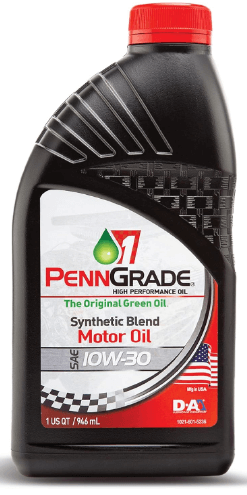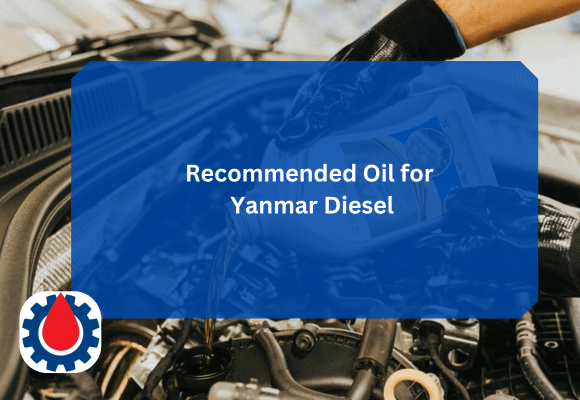In this post, we’ll explore the ideal oil type for a 1600cc VW engine and highlight three of the best motor oils for optimal engine performance and longevity.
1600cc VW Engine Oil Type
1. Valvoline VR1 Racing SAE 20W-50 High Zinc Motor Oil

Why it’s great:
Valvoline VR1 Racing Oil is a favorite among classic car enthusiasts and racers. It offers a high zinc and phosphorus formula that provides exceptional wear protection, especially for flat-tapet cams.
The 20W-50 viscosity makes it a strong contender for older engines operating in warmer climates or under heavy loads.
Key Features:
- High ZDDP content for enhanced wear protection
- Designed for high-performance and classic engines
- Helps reduce oil foaming at high RPMs
- Excellent thermal stability
Best For: High-mileage or performance-tuned 1600cc engines, especially in hot climates.
2. Brad Penn Penn-Grade 1 SAE 10W-30 Partial Synthetic Oil

Why it’s great:
Brad Penn (now under the Penn-Grade 1 label) is well-known in the classic car community for producing oils tailored to older engines.
This particular blend is a partial synthetic with a green-tinted base and a strong additive package, including high ZDDP levels. The 10W-30 viscosity makes it perfect for everyday driving in moderate conditions.
Key Features:
- Partial synthetic for added stability
- High-performance base stock and additive package
- Excellent film strength under stress
- Good for both air-cooled and water-cooled engines
Best For: Daily-driven classic VWs in moderate temperatures.
3. Lucas Oil SAE 20W-50 Hot Rod & Classic Car Motor Oil

Why it’s great:
Lucas Oil has built a solid reputation for producing specialized lubricants, and this oil is specifically formulated for classic engines. With added ZDDP and other anti-wear agents, it offers excellent protection against metal-to-metal contact.
It also helps maintain stable oil pressure and is suitable for engines that are stored for long periods.
Key Features:
- Fortified with zinc and phosphorus
- Designed for classic, hot rod, and muscle car engines
- Excellent resistance to thermal breakdown
- Protects against rust and corrosion
Best For: Infrequently used or stored 1600cc engines, as well as performance-oriented setups.
Related Volkswagen Engine Oil Capacity Chart(For All Models)
Ideal Oil Type for 1600cc VW Engine
When it comes to classic 1600cc VW engines, the oil requirements differ slightly from those of modern engines. Since these engines are air-cooled, the oil plays a dual role: lubricating the engine and dissipating heat. Therefore, selecting an oil with appropriate viscosity and additive content is essential.
Recommended Oil Viscosity:
- SAE 10W-30 or SAE 10W-40 are generally suitable for moderate climates.
- SAE 20W-50 is often recommended for warmer temperatures or older engines with higher mileage and looser tolerances.
Mineral vs. Synthetic:
- Mineral oil is often preferred for vintage VW engines because it mimics the characteristics of the oils available during the original design of the engine.
- However, high-quality synthetic oils with proper zinc/phosphorus (ZDDP) levels are also a good option, especially if you’re pushing the engine hard or live in areas with extreme temperatures.
ZDDP Additives:
Zinc dialkyl dithiophosphate (ZDDP) is a critical additive that protects flat tappet camshafts, common in classic VW engines. Many modern oils have reduced ZDDP due to emissions regulations, so choosing an oil with sufficient levels of this additive is key to protecting older engines.
Related Bobcat Engine Oil Type(Recommended By Manufacturer)
FAQ
How much oil does a 1600cc VW engine take?
A classic 1600cc air-cooled VW engine (commonly found in the VW Beetle, Bus, Karmann Ghia, etc.) typically takes 2.5 to 2.65 quarts (approximately 2.4 to 2.5 liters) of engine oil.
Since these engines often do not have oil filters, it’s important to change the oil more frequently, about every 3,000 miles or less.
Which engine oil is better, 5W-30 or 5W-40?
Both oils have their place, and the best choice depends on your engine and driving conditions:
- 5W-30: Flows slightly better in cold starts, improves fuel efficiency, and is recommended for newer engines or engines with tight tolerances.
- 5W-40: Offers better protection at higher operating temperatures, making it more suitable for older engines, hot climates, or heavy-duty driving.
For classic 1600cc VW engines, 5W-40 is generally the better option if you’re choosing between the two. It provides thicker protection when hot, which is useful for air-cooled engines.
Related Engine Oil With Most Zinc(Top 5 Best 2025)
Can you use 5W-30 oil in a VW?
Yes, you can use 5W-30 oil in a VW, especially in modern Volkswagen models that require it. However:
- For classic 1600cc air-cooled VW engines, 5W-30 is not typically recommended unless you’re in a very cold climate.
- These older engines benefit more from thicker oils like 10W-30, 10W-40, or 20W-50 because of looser internal tolerances and lack of an oil filter.
What oil does a VW Beetle 1.6 take?
That depends on the generation of the Beetle:
- Classic VW Beetle 1.6L (air-cooled):
- Recommended oils include:
- SAE 10W-30 (for cooler climates)
- SAE 10W-40 or 20W-50 (for warmer regions or older engines)
- Oils with high ZDDP content are preferred due to the flat tappet camshaft design.
- Modern VW Beetle 1.6L (water-cooled diesel or petrol):
- Always use VW-approved synthetic oil that meets the required VW standard (e.g., VW 502.00, 505.01).
- Typically, 5W-30 or 5W-40 full synthetic oil is used, depending on the engine variant and year.
How much oil does a 1.6 engine take?
The oil capacity of a 1.6-liter engine varies based on the engine design, model, and presence of an oil filter, but here are general estimates:
- Classic VW 1.6L air-cooled:
- Around 2.5 liters (2.65 quarts)
- Modern 1.6L engines (e.g., VW, Ford, Toyota):
- Typically 3.5 to 4.5 liters (3.7 to 4.8 quarts) including the oil filter
Related Zinc Additive Engine Oil(Benefits & Hidden Formula)
Final words
Classic 1600cc VW engines are relatively simple machines, but their longevity and performance rely heavily on the type of oil you use. With modern oils designed for today’s high-tech engines, it’s easy to overlook the unique needs of vintage air-cooled engines.
Always look for oils with high zinc and phosphorus content, suitable viscosity for your climate, and a formula that supports flat tappet valve trains.
Stick with trusted brands like Valvoline, Brad Penn, or Lucas Oil, and your air-cooled classic will thank you with many more miles of dependable performance.




